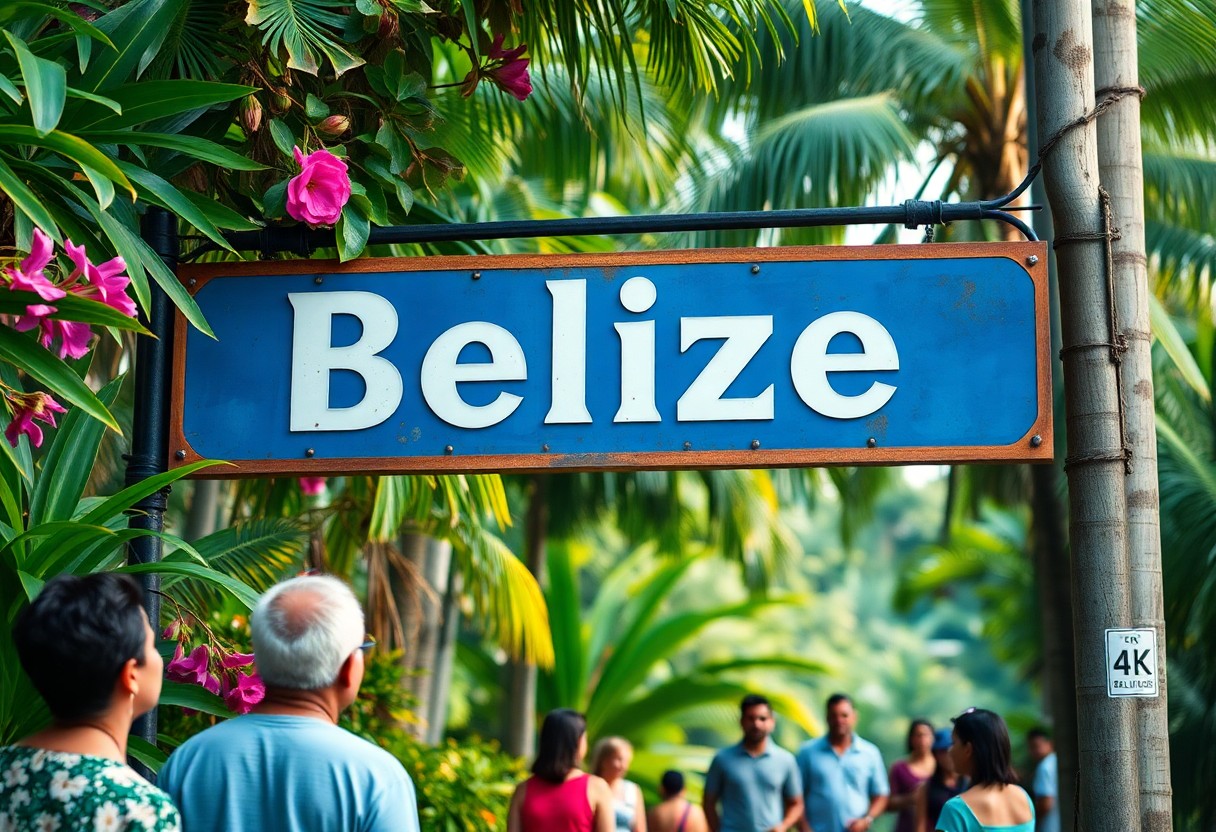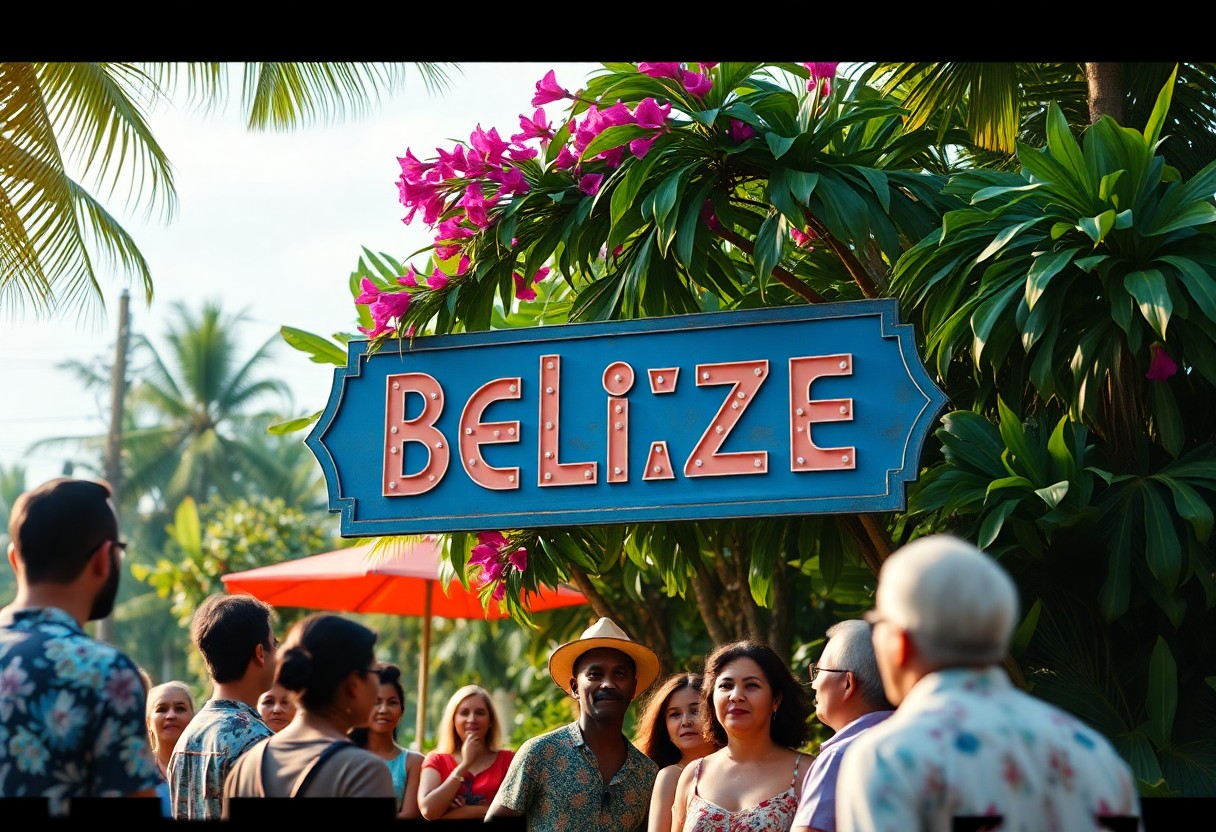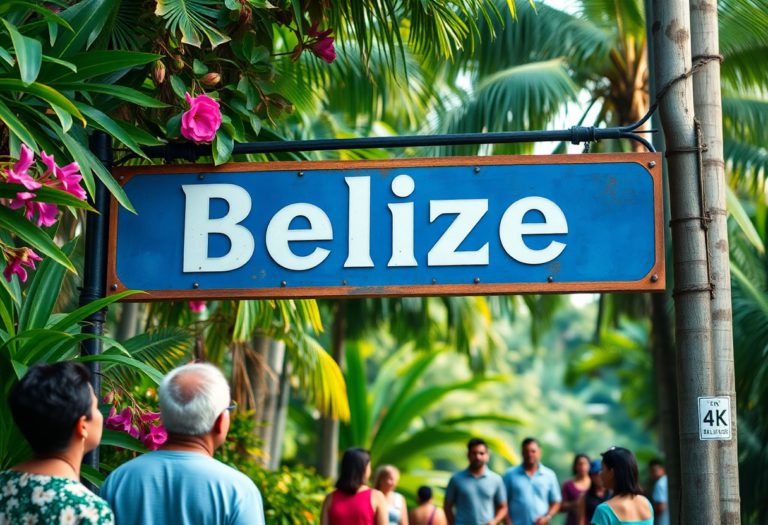Many individuals often find themselves confused when attempting to pronounce the name of this captivating Central American nation correctly. You may have encountered various attempts at pronunciation, but the accurate way to say it is “beh-LEEZ”, which is distinctly different from the commonly mispronounced versions like “buh-LIZE” or “beh-LIZE.” This comprehensive guide is designed to provide you with the clarity you seek, enabling you to confidently articulate the name of this stunning tropical destination. Mastering the proper pronunciation not only enhances your communication skills but also demonstrates your respect for the local culture and the beautiful languages that are integral to the region’s rich heritage.
Identify and Correct the Most Common Mispronunciations of Belize
Before diving into the intricacies of pronouncing “Belize,” it’s essential to recognize the most prevalent mispronunciations that people often make. These errors can vary from minor syllable differences to entirely incorrect renditions, which might reveal a lack of familiarity with the nation’s rich linguistic heritage. By understanding and identifying these frequent mistakes, you empower yourself to pronounce the name with greater accuracy and increased confidence, significantly enhancing your overall communication experience.
Clarifying the Distinction Between “Beh-leez” and “Beh-lize”
If you’re unsure about the correct pronunciation of the name, you may find yourself caught between two commonly used variations. The incorrect versions largely emphasize different syllables, leading to confusion not only among native speakers but also among language enthusiasts. Recognizing these phonetic variations is crucial for effective communication and for bridging cultural divides, facilitating more meaningful interactions across diverse linguistic backgrounds.
The Misguided Pronunciation of “Bee-lease” Explained
This particular variant diverges significantly from the accurate pronunciation, straying from the authentic articulation of the name. This mispronunciation indicates a fundamental misunderstanding of the word’s linguistic roots and its cultural significance. By acknowledging these common missteps, you can enhance your appreciation for the language and the diverse communities of Belize, fostering a deeper connection to its vibrant culture.
Understanding the subtle pronunciation details, such as “Behlize,” further complicates the process of accurately saying the name of this country. Paying close attention to the subtle distinctions that characterize authentic pronunciation is vital. Native speakers often utilize a specific intonation that captures the essence of the word, placing a gentle emphasis on the initial syllable with a soft ‘beh’ sound, followed by a clear ‘leez’ ending that encapsulates the beauty of the language.
Discover the Historical Roots Behind the Name Belize
If you’re fascinated by the linguistic origins of “Belize,” the name carries a captivating historical narrative that intertwines indigenous and colonial influences. The etymology of this term is intricate, reflecting a rich cultural tapestry that is woven into the identity of this Central American nation. Understanding the origins of the name can significantly enhance your connection to the place and its historical context, providing deeper insights into its cultural significance.
Investigating Possible Mayan Influences on the Name
One prominent theory posits that the name “Belize” may originate from <a href=”https://xamanekbelize.com/belize-s-diverse-ethnic-heritage-and-society/”>Mayan linguistic heritage</a>, potentially deriving from the Mayan word “belix,” which translates to “muddy waters” or refers to a specific river tributary in the region. This linguistic connection underscores the deep indigenous heritage that is intrinsically linked to the naming conventions and cultural identity of the nation, enriching our understanding of its history.
The Impact of Colonial History on Pronunciation Variations
The evolution of the name has been influenced by European interpretations through both Spanish and British colonial encounters. This linguistic transformation transpired as European settlers arrived and documented the region, gradually adapting indigenous names and terms to fit their own linguistic frameworks, which significantly altered the pronunciation along the way.
Understanding the Dynamics of Colonial Naming and Pronunciation Variations
Variations in the name began to surface during colonial times, with Spanish explorers and British settlers providing diverse phonetic renditions. The British colonization notably impacted the current pronunciation, transforming indigenous phonetics into a more anglicized version that we identify today as “Belize.” This evolution reflects the broader historical dynamics of colonial influence on language, pronunciation, and cultural identity.

Essential Tips for Perfecting the Pronunciation of Belize
While mastering the pronunciation of Belize may seem daunting at first, several effective strategies can assist you in sounding more like a local. Consider integrating these crucial tips into your practice routine to enhance your pronunciation skills:
- Emphasize the first syllable to ensure clarity and accuracy
- Utilize a soft “z” sound to enhance correctness and authenticity
- Avoid common pitfalls in mispronunciation to foster better communication
By recognizing and discerning these nuanced sounds, you will empower yourself to articulate the name of the country with confidence and authenticity, reflecting a genuine engagement with its rich culture and heritage.
Phonetic Breakdown for Enhanced Clarity and Understanding
When analyzing the word phonemically, you will discover that “Belize” is pronounced as “buh-LEEZ.” The stress on the second syllable creates a rhythmic and fluid sound that encapsulates the linguistic essence of this vibrant Central American nation, well-known for its rich biodiversity and cultural diversity that attracts visitors from around the globe.
Contrasting Local Creole Pronunciation with Standard English
There are subtle variations between the local Creole pronunciation and that of standard English when articulating “Belize.” However, the fundamental pronunciation remains consistent across various linguistic contexts, ensuring clarity in communication. Understanding these differences is key to appreciating the linguistic nuances of Belize.
It’s important to note that local Creole may introduce nuanced accent variations. Native speakers often blend elements of English, Spanish, and Creole, resulting in a rich linguistic tapestry that reflects the country’s diverse cultural heritage and historical influences, enriching the experience of learning the language.
Here’s what you need to know for your blog post sections:
Key Factors Influencing the Pronunciation of Belize
Unlike straightforward language rules, the pronunciation of “Belize” is shaped by multiple linguistic factors. Several critical elements impact how you articulate this word accurately:
- The linguistic background of the speaker plays a significant role
- Personal exposure to the language can affect pronunciation
- Regional dialect variations significantly influence articulation
- Your language learning experience and practice contribute to your proficiency
Understanding these nuances will help you appreciate the complexity behind the pronunciation of this name, further enhancing your communication abilities and cultural understanding.
Examining Regional Pronunciation Variations Across Geographical Regions
Pronunciation variations can be observed across different geographical regions. Subtle distinctions may arise between North American, Central American, and British English speakers. These regional differences can significantly influence how “Belize” is pronounced in everyday conversations, highlighting the richness and diversity of language throughout the region.
The Role of Cultural Context in Influencing Pronunciation
A profound understanding of cultural context plays a significant role in pronunciation variations. Your familiarity with Belizean history and its vibrant linguistic traditions can greatly impact how authentically you articulate the name. Pronunciation transcends mere phonetic accuracy; it serves as a reflection of a rich cultural heritage. When you articulate “Belize,” you engage with the country’s diverse linguistic landscape, and native speakers appreciate when you approach the pronunciation with respect and genuine interest in their cultural nuances, which fosters goodwill and deeper connections.
Exploring the Benefits and Challenges of Accurate Pronunciation
To fully grasp the implications of accurately pronouncing “Belize,” it’s essential to explore both the benefits and challenges involved, providing a well-rounded perspective on the importance of correct pronunciation.
| Benefits of Correct Pronunciation | Challenges of Mispronunciation |
|---|---|
| Demonstrates linguistic respect and appreciation for the culture | May lead to initial awkwardness in conversations with locals |
| Enhances clarity and reduces misunderstandings in communication | Could confuse some listeners unfamiliar with the name |
| Shows cultural awareness and sensitivity towards local traditions | Requires dedicated practice and effort to master |
| Improves overall language proficiency and communication skills | Involves a small learning curve for some individuals |
Demonstrating Genuine Respect for Belizean Culture
If your goal is to genuinely respect Belizean culture, mastering the correct pronunciation is more than just a linguistic endeavor. It reflects your commitment to understanding and honoring local linguistic traditions, thereby deepening your connection with the culture and its people, which is vital for meaningful interactions.
Ensuring Effective Communication Through Accurate Pronunciation
While pronunciation might seem like a minor detail, accurate articulation is crucial for preventing miscommunication and facilitating smoother interactions with native speakers. By honing your understanding of the nuances of “Belize,” you will be equipped to navigate conversations with greater assurance and clarity.
By pronouncing the name accurately, you convey your cultural sensitivity and linguistic competence, paving the way for more meaningful interactions and deeper connections with the inhabitants of Belize, enhancing your travel experience.

Your Comprehensive Step-by-Step Guide to Pronouncing Belize Accurately
Now, let’s break down the pronunciation of “Belize” with a clear, step-by-step guide. To aid you in mastering this pronunciation, here’s a detailed table that will lead you through each syllable:
| First Syllable | buh |
| Second Syllable | leez |
In-Depth Analysis of Each Syllable for Enhanced Clarity
Understanding the individual syllables is vital for correctly pronouncing “Belize.” The first syllable, “buh,” is soft and brief, while the second syllable, “leez,” features a sharp, clear sound that should be emphasized for accuracy. This distinction is crucial for achieving the correct pronunciation.
Effective Techniques for Practicing Your Pronunciation Skills
If your goal is to perfect your pronunciation, start by articulating each syllable separately before blending them together. Engaging in slow and deliberate practice will gradually build your confidence and fluency in pronunciation.
Utilizing audio resources, such as language learning applications or pronunciation videos, can provide valuable examples from native speakers. Listening and repeating is an excellent method for training your ear and mouth to produce the right sounds. Additionally, consider recording yourself and comparing your pronunciation with that of native speakers to effectively monitor your progress and refine your skills.
Final Insights on the Pronunciation of Belize
With the knowledge you now possess, you have a deeper understanding of the intricate pronunciation of Belize. Whether you choose the American “BELL-eez” or the local Belizean “beh-LEEZ,” your selection conveys cultural awareness and linguistic respect. Armed with this understanding, you can confidently engage in discussions about this Central American nation, appreciating the subtle variations in pronunciation. By mastering these pronunciation techniques, you demonstrate linguistic sensitivity and an appreciation for regional speech patterns. Your newfound expertise will ensure you sound informed and culturally attuned while referencing this vibrant and beautiful country.
Frequently Asked Questions About the Pronunciation of Belize
What are the two primary pronunciations of “Belize”?
The two widely recognized pronunciations are “buh-LEEZ” (most common in North America) and “beh-LEEZ” (preferred by many Belizean natives). Both pronunciations are linguistically acceptable, with the first variant being more prevalent on an international scale, reflecting the diverse linguistic landscape.
Are there pronunciation differences between English and Spanish speakers?
Yes, Spanish speakers typically pronounce Belize as “beh-LEE-seh,” characterized by a softer ending, while English speakers generally use “buh-LEEZ,” which features a more pronounced “z” sound. These linguistic variations stem from regional phonetic patterns that are inherent in each language, highlighting the cultural differences.
What factors contribute to the existence of pronunciation variations for this country’s name?
Pronunciation differences arise from historical linguistic influences, including the impact of British colonial heritage, indigenous Mayan language roots, and Spanish colonial effects. The complex linguistic landscape of Belize contributes to multiple accepted pronunciation methods, reflecting its rich multicultural history and the interplay of languages.
The Article How to Pronounce “Belize” Correctly: A Quick Linguistic Guide appeared first on Belize Travel Guide
The Article Pronounce “Belize” Correctly: A Quick Linguistic Guide Was Found On https://limitsofstrategy.com



